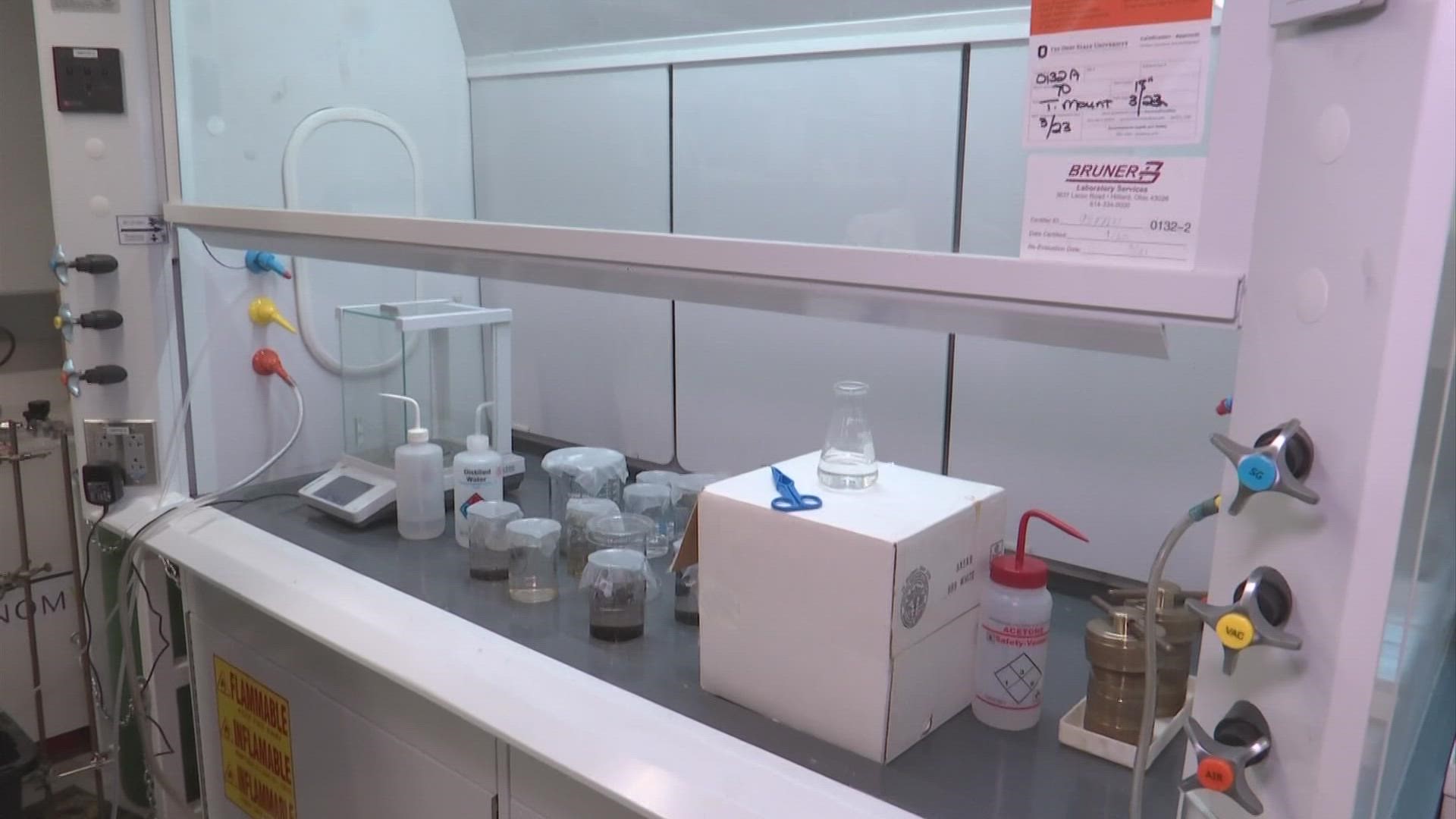COLUMBUS, Ohio — Science engineers at Ohio State University are working on the next generation of digital health care, which is focused on gases that come out of your skin.
A group of researchers at the university are working on a range of low-cost gas sensors that can help detect diseases including diabetes and heart disease through molecules such as acetone, ethane and isoprene.
Exhaled human breath is a combination of hundreds of gases. When the sensor is exposed to the gas, it bends to indicate metabolic health or the presence of a disease.
"It's going to tell you if you're burning fat or muscle. It's going to tell you if your diet is successful. It's going to tell you how particular foods are metabolized," said Dr. Pelagia-Iren “Perena” Gouma, a material science and engineering professor at OSU. "The device can really send a signal to you whether by changing color or by sending you a text and telling you, 'now you need to take your insulin,'" she said.
The sensor will be worn on the finger or behind the ear. The goal is to make a wearable device that everyone can access.
"It's like a sticker you can wear on your skin that will wirelessly communicate with some other device to tell you things like 'hey your blood sugar is out of the range that it should be in,'" said Anthony Annerino, a graduate research associate at Ohio State.
The group said the tools currently used for biomarker detection are too expensive but could be easy, quick, and non-invasive diagnostic tools. They plan to test the sensors within the next six months.

